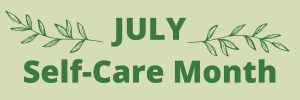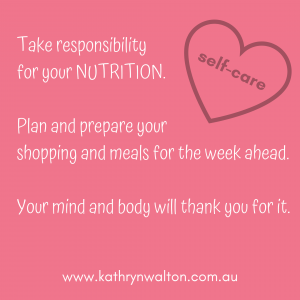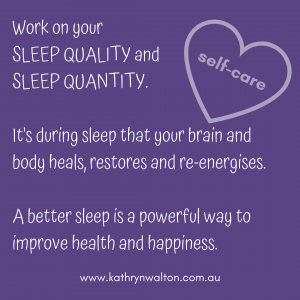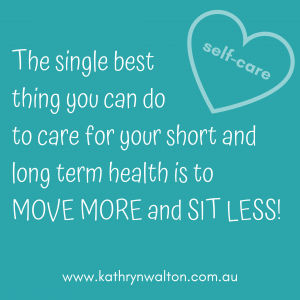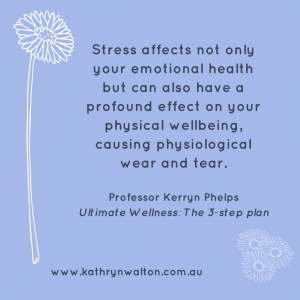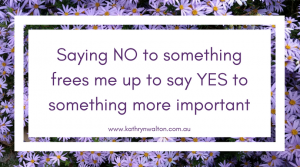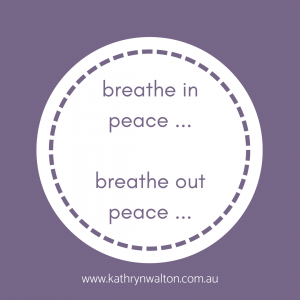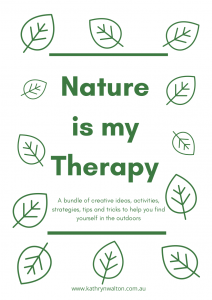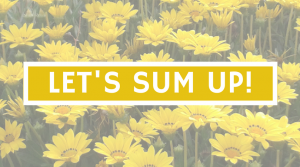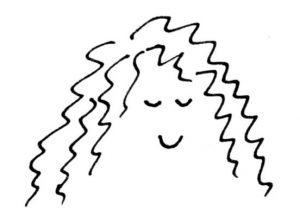I’m writing this article during the month of July in the year 2020 and I’m asking all sorts of questions to get you thinking about your own self-care. Recently I wrote about how to stress less in nature. Nature offers a rich and beautiful set of self-care tools that you can easily and affordably access. In the Outdoors is my Therapy podcast last week I shared a guided mindfulness practice that you can do outdoors – once again this is a valuable self-care tool.
But today I want to get back to exploring the true meaning of self-care including what you most need to focus on so you don’t get distracted or led up the wrong path when it comes to self-care. Next week you’ll get some tips on managing one of the most common obstacles that women stumble over with self-care, and that’s time – juggling all the things, the competing priorities and responsibilities.
Self-care is never skin-deep
Self-care is never skin deep. If you believe the advertisements trying to sell you a glossy image of self-care, it might look like having your nails done, having a holiday in Bali or spending a whole day shopping for new clothes and handbags and shoes. And these activities can be part of self-care. But if we only focus on buying luxury and often expensive activities, services and products to make ourselves feel good, then we’re missing out on the vital aspects, the very foundations of true self-care.
Finding a common thread between Child Care, Aged Care and Self-Care
Let’s look at it another way. If I asked you what’s child care, or aged care or neighbourhood care, what do you think of? What are the tasks, the activities you actually do when you’re caring for children or older people in poor health or your neighbours?
Child Care – tasks and values
When I think of child care for example, I think about looking after children’s physical and emotional needs like:
- providing a safe environment for them to play
- giving them plenty of running around time outdoors
- preparing food
- buying the groceries and bringing them home
- getting the house in order
- making sure the kids have educational activities like great books and games
- setting boundaries on their bedtimes and use of devices
- cooking nutritious meals
- packing their lunches with care and attention (sometimes leaving a special treat or message in there for them)
- making sure they get to sports practice and get their homework done
- supporting them to rise up to challenges and celebrate the joys and successes
- helping them settle down to sleep with a good evening routine
- listening to the children with compassion when they’re upset, giving them some gentle advice and checking back in with how they’re going later on
- organising medical advice and treatment when they are unwell
Caring for children, aged and sick people, and our neighbours generally starts with making sure that physical and emotional needs are met. Care also goes beyond those basics because our actions align with values such as love, kindness and compassion.
Self-Care – tasks and values
When it comes to self-care how many of these tasks do you routinely do for yourself, and when you do, are you doing them with love, care, kindness and compassion?
Which of these tasks or values get left out?
Where are you at with your self-care?
Here are some reflective questions you can ask yourself to identify where you’re at with self-care right now. These questions are intended to be a prompt to identify where you might be able to focus some extra energy and attention. They’re not meant to be a judgement or comparison between yourself and anyone else. Self-care looks a bit different to each individual so there is no right way of doing it. But you’ll know when you’re doing self-care better because you’ll have more energy, attention and compassion for the other parts of your life – your relationships, the people you care for. You’ll feel like your cup is full enough to be able to share your time and energy being with others and helping others at work or in your personal life.
Self-Care Audit and Reflection QUESTIONS
• Am I choosing carefully and lovingly what I feed myself with, what I put into and onto my body – food as natural as possible, water, cosmetics, and anything else?
• Am I looking after myself by moving my body throughout the day? This is the single biggest factor that will improve your health prospects.
• Am I getting outside everyday to enjoy the fresh air, or sunshine, or rain, the garden, the clouds, the breeze?
• Am I exercising? Exercise is physical movement for a specific purpose for example to improve cardio-vascular fitness, flexibility, endurance, strength.
• Am I nurturing myself with social activities that feed my mind and soul? Am I connecting with people who lift me up and add great value to my life?
• Am I getting enough sleep?
• Am I self-disciplined with using devices and how I spend my time including getting to bed and getting up in the morning?
• Do I listen to my body and my mind and my heart?
• Am I compassionate and caring towards myself in ways that I’m compassionate and caring towards others?
• How am I speaking to myself today? Am I speaking to myself as I would speak to a friend?
• Am I spending time in nature? Do I check in every week to find my place in the natural world? 2 hours a week is good amount of nature time to aim for to enjoy its benefits the most.
• Do I gift myself time and space to reflect, to think, to pause, to just be?
Are you neglecting or nurturing your self-care?
These questions dig down into the very foundations of self-care that we often neglect. These are the aspects of self-care that build your health and energy, your sense of vitality and self-worth. They don’t sound super-exciting or dazzling but they are essential. If you neglect these foundations, and spend your time, energy and money constantly seeking other activities to fill your self-care cup, you’ll never be content.
What parts of self-care do you most need to focus on?
What aspects of self-care are you currently practising and feel satisfied with?
And which ones would you like to work on?
How are you going to do that?
What might get in the way?
Share your story with me!
I love having conversations like these with the women in my communities and I’d love to hear from you too. Let me know how your self-care practices are going, what the challenges are and what’s working well. You can also request a complementary 30 minute video chat (for a limited time, maximum numbers, Australia only).
If you haven’t already, join the Outdoors is my Therapy Facebook Community where there’s lots of sharing of inspiring ways to practise self-care in the outdoors. You can also sign up to receive my fortnightly Grounded Inspiration email newsletters filled with snippets of information and inspiration to keep your self-care, health and happiness rolling along.
Listen along to the podcast episode “What does self-care look like?”
Discovering mountain biking as life’s ultimate parallel universe in her middle age, 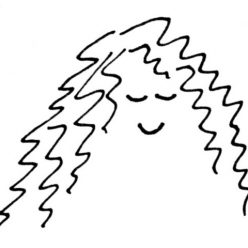 Kathryn Walton shares information and reflections in Daisy Spoke that connect, inspire and self-empower women to make healthy choices for themselves. She integrates her love of physical exercise, family, nature, gardening and creative arts with her professional background in mental health social work to facilitate change with individuals, groups, workplaces and communities of women who are committed to living life to the full.
Kathryn Walton shares information and reflections in Daisy Spoke that connect, inspire and self-empower women to make healthy choices for themselves. She integrates her love of physical exercise, family, nature, gardening and creative arts with her professional background in mental health social work to facilitate change with individuals, groups, workplaces and communities of women who are committed to living life to the full.
